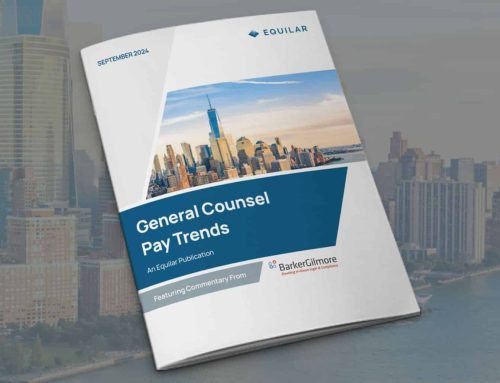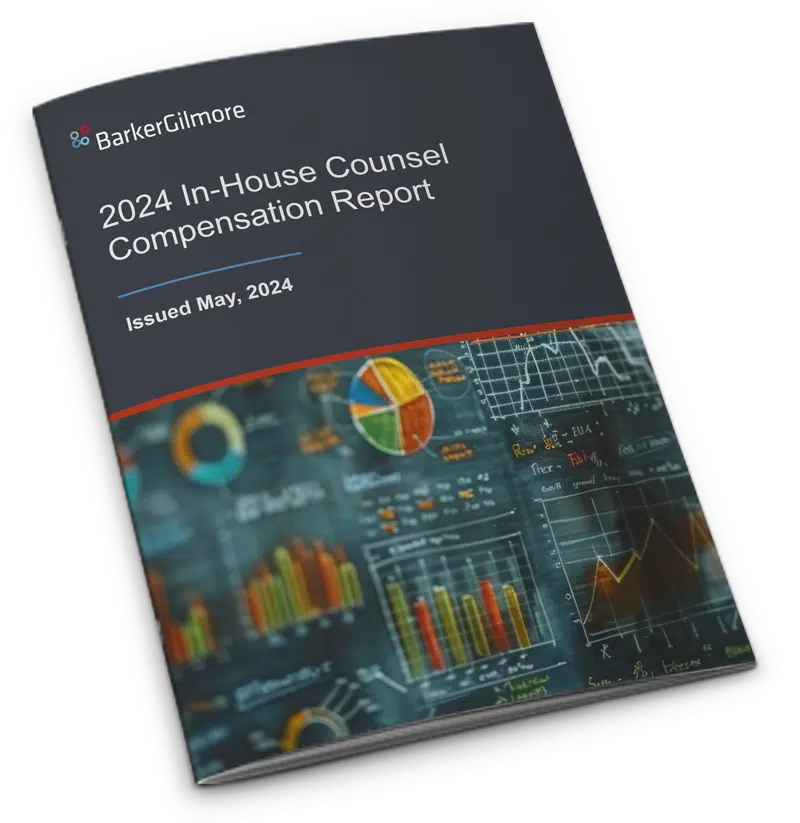Strategic Advisor and Coach Maureen Brundage, former EVP, General Counsel, Corporate Secretary & Chief Ethics Officer of The Chubb Corporation, is joined by Kristy Rogan Meringolo, SVP, General Counsel, Chief Compliance Officer & Corporate Secretary of The Hain Celestial Group, and Cameron Findlay, SVP, General Counsel & Secretary of Archer Daniels Midland, to provide tips on handling ever-increasing workloads with limited resources and developing talent in a remote work environment. Our distinguished legal experts understand the differences between small and large companies and offer practical advice and solutions from both a Fortune 1000 and a Fortune 50 perspective.
Below are highlights from the webinar. To learn more, the video recording and podcast are available on this page.
Historically, the daily demand on legal departments continues to increase, and the Covid-19 pandemic has only added more stress to already burdened teams. Now more than ever, it is important to learn how everyone on the legal team can better handle the workload, focus on talent development, and make a concerted effort to reduce costs.
Over 70% of surveyed GCs report that Covid-19 increased workloads.
The pandemic brought a host of issues for legal departments to consider, over and above what was already in the pipeline. The unexpected agenda included employee safety, regulatory matters, contract and supply chain issues, cyber threats, among other unforeseen issues. For many essential businesses, legal departments were dealing with how to keep employees safe during the early stages of the pandemic. Large companies, for example, had employees working in manufacturing facilities around the globe and had to grapple with pandemic-related government mandates that differed by country and/or region. Now, companies of all sizes are navigating return to work and vaccination policy issues.
“There were other challenges in between — supply disruptions, ingredient sourcing, government regulations that differ not only nationally, but with respect to each individual municipality, creating lots of questions and particularly around code. Having an all-remote corporate infrastructure also brought a full-range of issues that we have certainly never experienced before.”
— Kristy Meringolo
When it comes to the budget, if you don’t ask you don’t get.
Legal department budgets traditionally have been rather lean. During the pandemic, surprisingly, surveys indicate that just under 50% of companies experienced budget cuts while nearly the same number saw budget increases. Certain industries, like airlines and hospitality industries, were hit hard, but essential industries did well and budgets therefore remained consistent. If your legal department has been asked to make budget cuts, or you need a budget increase, it’s important to speak up and push back, and perhaps even ask for more. However, be sure to pick your battle. Solicit feedback from your business partners to understand where they need legal support and find legal’s help to be the most impactful so that you can leverage the position of the legal team within the organization.
“It’s critical to get support from your business colleagues before requesting a budget increase. In fact, having someone other than the General Counsel ask on behalf of the legal department is often the most effective way to do it — and it’s ultimately about developing trust. If you ask too often, they’ll think you’re an empire builder, but if you ask only when it’s necessary, your colleagues will know that when you ask it is absolutely necessary.”
— Cameron Findlay
Talent is the legal department’s most valuable asset.
The importance of talent development cannot be underestimated. This is often a difficult task because legal departments are usually flat organizations with limited opportunities for advancement and lack the time or financial resources to devote to this ongoing initiative.
However, there are many steps that can be taken to develop talent, which are as simple as including people in meetings. Get your staff placed on cross-departmental project teams including strategic initiatives that the company may be involved in. In fact, finding opportunities to help your team engage with senior leaders has become easier in today’s remote work environment without requiring expensive travel arrangements.
“Look for opportunities for programs that may be offered internally or externally that the corporation may pay for and that may not come out of your budget. It is also important to find mentors or coaches, and perhaps the human resources department can help you in this effort. Companies like BarkerGilmore, and people like myself, can serve as coaches for legal team members at every stage of their career.”
— Maureen Brundage
Learn even more from the Q & A.
Attendees submitted questions to our distinguished speakers and their answers provide additional information on this topic.
1. How do you spot the in-house lawyer who has taken on more than they really can handle – that may be stretched too thin? How do you approach that lawyer about scaling back/delegating away some of their responsibilities without diminishing their conception of their position/responsibilities?
You or the managers on your team should be checking in with reports to see what is on their plates and to assess how they are doing. You also need to look for warning signs that someone may be overloaded. Are they missing deadlines? Has the quality of their work deteriorated? Have they been unusually curt or testy in interactions with you, other team members, or clients? If you determine that a lawyer is stretched too thin, you or the manager should raise it directly and review with the lawyer their workload to determine what work can be eliminated or delegated, making it clear that you have the lawyer’s wellbeing in mind. If the issue is caused by a business client who will just not take no for an answer, you may need to address that with the business client or guide the lawyer on how to do so.
2. For international matters, have you found smaller firms or larger firms to be more knowledgeable and efficient?
It depends on the matter and the law firm (as is the case for U.S. work). Generally, smaller firms may be less expensive than larger ones (e.g., lower rates, leaner staffing of matters). However, the breadth of the work that smaller firms do may be more limited, unless it is a firm that specializes in the area with which you need help. In some countries, choices also may be pretty limited depending on your needs (including language requirements). You really need to do your homework on expertise, costs and reputation. For future reference, it is helpful to create a database of firms used or recommended by others which includes feedback.
3. Cam’s iceberg analogy is incredibly helpful. Can you expand on how to calculate the cost and benefit of increasing headcount? Particularly for litigation, it’s difficult to estimate the economies of scale necessary to make handling litigation in-house economically feasible.
Obviously, you first need to determine what work you intend to have the add-to-staff do. The most straightforward areas of work to bring in-house are those where there is a relatively steady, constant amount of the work (e.g., investigating and dealing with discrimination complaints, as opposed to infrequent class action litigation). Figure out the volume of the work (e.g., the number of transactions, filings, cases). If it is work you have been giving to, or would have to give to, outside counsel, calculate what you have been paying (or would have to pay) for it. On the flip side, you need to figure out what the total all-in cost of the add-to-staff would be.
It is important that, in analyzing the costs and benefits, you do so not just quantitatively, but also quantitatively. For example, in-house counsel over time generally will become more knowledgeable about the business than an outside attorney and can also serve as a utility player to help on other matters when the need arises. In addition, if relevant, highlight how the add-to-staff will help the business (e.g., new product development, speed to market). You also should see about getting benchmarking data for other companies in your industry so you can compare the size of your department, your staffing budget, and your outside counsel spending to theirs. That may be helpful in the business case for the headcount increase.
4. Can you speak to Artificial Intelligence as a resource?
Use of AI in legal departments generally is in the very early stages, with many staying on the sidelines to see how it plays out further. Some may be utilizing tools involving AI for e-discovery and perhaps for other document searches, research, and prediction of litigation outcomes. More tools and other ways in which AI can help legal departments will likely be rolled out. Obviously, the costs and benefits will need to be weighed for each organization.
5. Are there any tips that you’d provide to an organization’s first GC where there is no established legal department?
This is a rather open-ended question. There are many things we could suggest, but we will limit our response to a couple of basic tips. First, you need to get a handle on the amount of legal work that is being done and that (perhaps more importantly) needs to be done. This would be done based on your experience since joining, as well as talking to your business colleagues, assessing the historical and current use of outside counsel, and perhaps talking to peers at other companies. You would then need to analyze the work from a risk/business benefit perspective (perhaps using a heat map) and prioritize it accordingly. In doing so, you need to understand your company’s risk appetite, as well as its business and strategic imperatives. Once you figure out the work on the top of the to-do-list, you need to determine what you are able to handle and what makes sense be handled by outside counsel (which will depend on many things, including your expertise, the time involved and your outside counsel budget).
Maureen Brundage and our team of professionals are happy to help accelerate the initiatives that you’re already pursuing or to supplement your current strategic thinking to help you realize your vision. Please reach out if you or your organization may benefit from our recruiting, leadership development and coaching, or legal and compliance department consulting services.
Connect with a legal recruiting advisor
* indicates required fields







